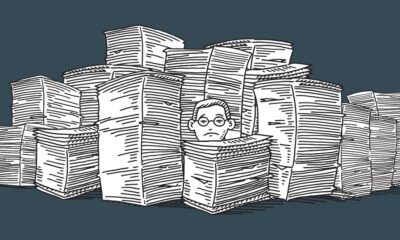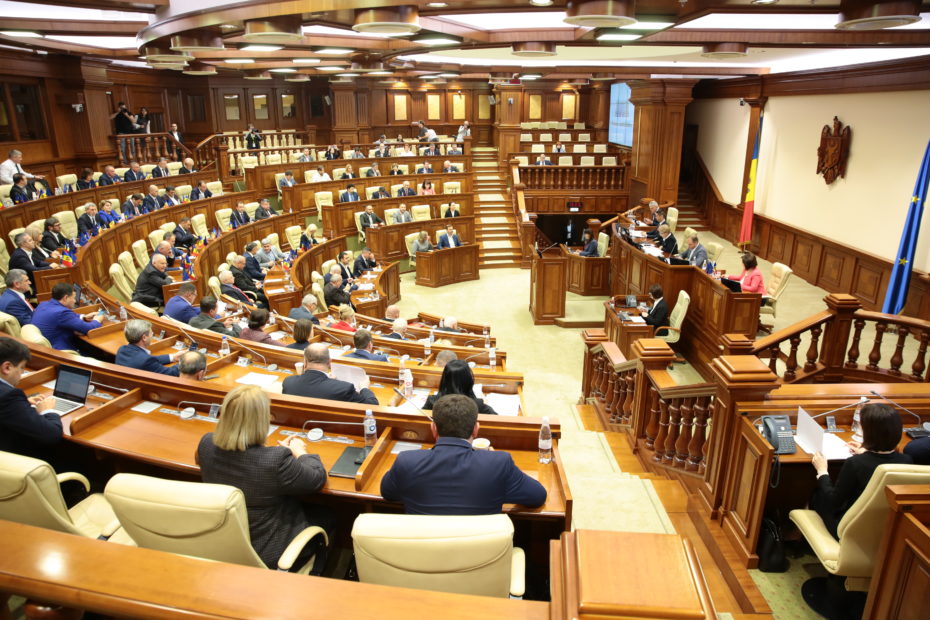
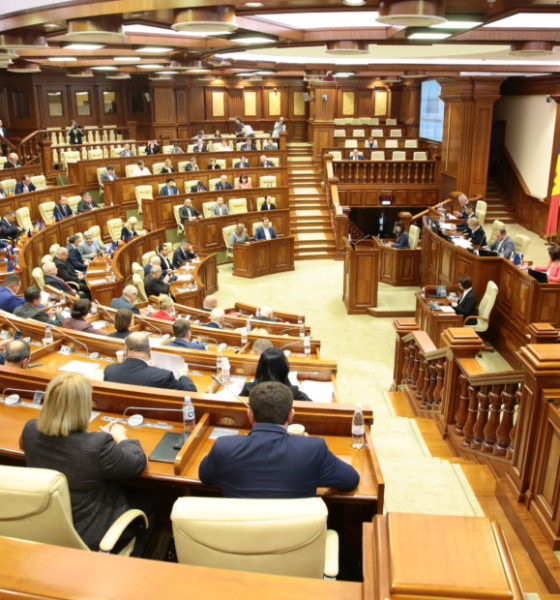
Politics
Moldova in the last decade// the most prominent political fiascoes the country experienced
The decisions taken by the Constitutional Court, the expulsion of Turkish teachers, the adoption of the mixed electoral system, the president removed from office “for 5 minutes”, the lack of Government or the doubled Government – there were so many failures in the Moldovan politics in the last 10 years, that it’s hard to count them.
During the last ten years, the citizens of the country have witnessed many changes of the political and state institutions. Moldova.org selected the most relevant events. Here is where we can remember the saying “Every nation has the leaders it deserves.”
1 Decisions of the Constitutional Court from 7 to 9 June 2019

The Constitutional Court of Moldova (CC) announced, on June 7, that the deadline for the Parliament, which was elected on February 24 and validated on March 9, to appoint the new Government expired. The CC calculated that the constitutional term of “three months” provided for the formation of the Government actually means “90 days” and that it expired on June 7, not on June 9. The next day, the political bloc ACUM and the PSRM signed a temporary agreement for the formation of a majority government, Zinaida Greceanii being voted the president of the Parliament and Maia Sandu being appointed the head of the Government.
Immediately thereafter, the CC declared all the laws and decisions adopted by the new Parliament as unconstitutional. On June 9, the Constitutional Court decided to remove President Igor Dodon from office and appointed Pavel Filip as the interim president. After the Democratic Party announced its power withdrawal, on June 15, the CC cancelled its own previously taken decisions.
The Venice Commission published an opinion, stating that the CC violated its own procedures when taking the respective decisions, but also the principle of impartiality towards the political parties. The Commission recalled that the Court’s role is to be equidistant and to act as an impartial arbitrator in the event of a confrontation between political parties.
2 The period of two Governments
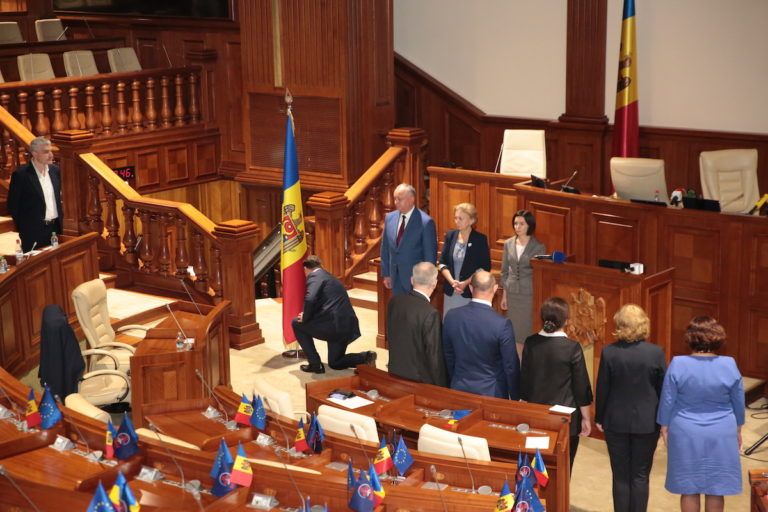
Between June 8-15, 2019, the Republic of Moldova had two Governments – the Government appointed by the newly formed majority government, led by Maia Sandu and the previous Government who still remained in power, according to the decision of the CC. Pavel Filip, the so-called interim president, announced the dissolution of the Parliament and the date of future snap elections.
The newly elected Parliament had its first session in the dark, as the technical employees of the building did not come to work that day. The democrats stated that they did’t recognise the new Government and didn’t intend to give up the power. The democrats’ leader Vladimir Plahotniuc accused the socialists of trying to usurp power. A week later, the Democratic Party decided to give up the power in favour of the Government appointed by the ACUM and socialists’ majority.
3 Clandestine interceptions’ scandal
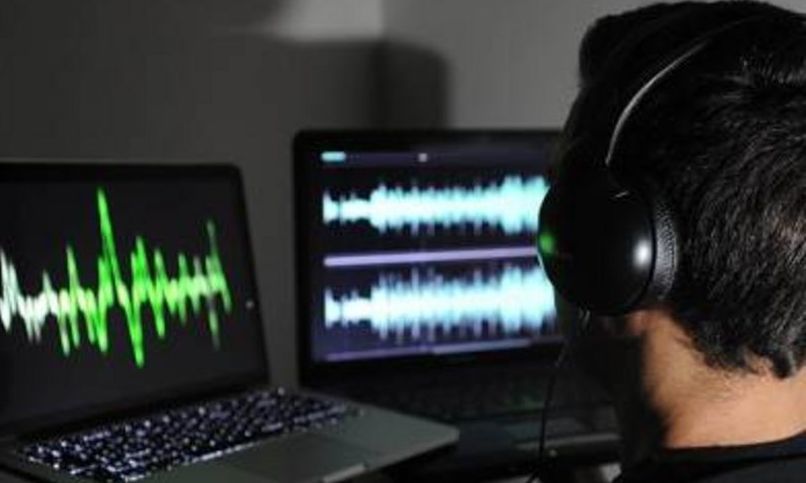
A RISE Moldova investigation has discovered an entire operation of intercepting and chasing the political opponents of the democratic government, which has been carried out in recent years. The operation was carried out under cover of three criminal cases, filed because of inconvenient Facebook messages or statements at press conferences. As a result, it was established that the activities of 52 people, including politicians, representatives of civil society, organisations representatives and journalists, were investigated by prosecutors and police officers.
After coming to power, the ACUM representatives declared that the number of people chased by the former government was much higher. In addition to intercepting phone calls, some of them have also been monitored, as microphones and video cameras were installed in their houses. President Igor Dodon claimed that, in 2018, there were 10 thousand interceptions, out of which 600 at the request of the Information and Security Service (ISS), and 3 300 interception in 2019, out of which 200 were initiated at the request of ISS. Most interceptions were initiated by the Ministry of Internal Affairs (MIA). Based on the interception scandal, criminal cases were filed against four MIA employees, three prosecutors and four judges.
4 Camouflaged expulsion of Turkish teachers
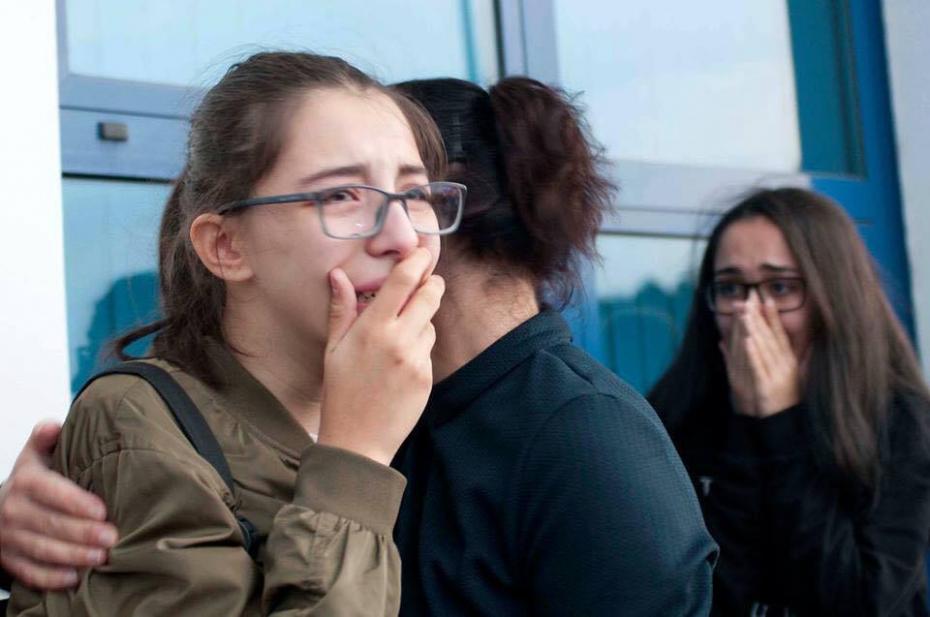
On September 6, 2018, seven Turkish citizens who were teachers at Horizon High School, were removed from their homes by employees of the ISS and taken in an unknown direction. The state institutions declared the action as “expulsion”, saying that the Turkish nationals were suspected of links with an Islamist group. They have been declared undesirable by the competent bodies and expelled from the territory of the Republic of Moldova.
The Turkish citizens were taken to Turkey by a charter plane and were sentenced to years of imprisonment. Immediately after the expulsion operation, European officials asked the Moldovan authorities “to comply with the rule of law and all judicial procedures” in this case. On June 11, 2019, the European Court of Human Rights issued a conclusion stating that Moldova violated the rights of Turkish citizens and required the government to pay 25 thousand euros for each of the Turkish citizens, whose rights were violated.
5 Cancellation of Andrei Nastase mayoral mandate
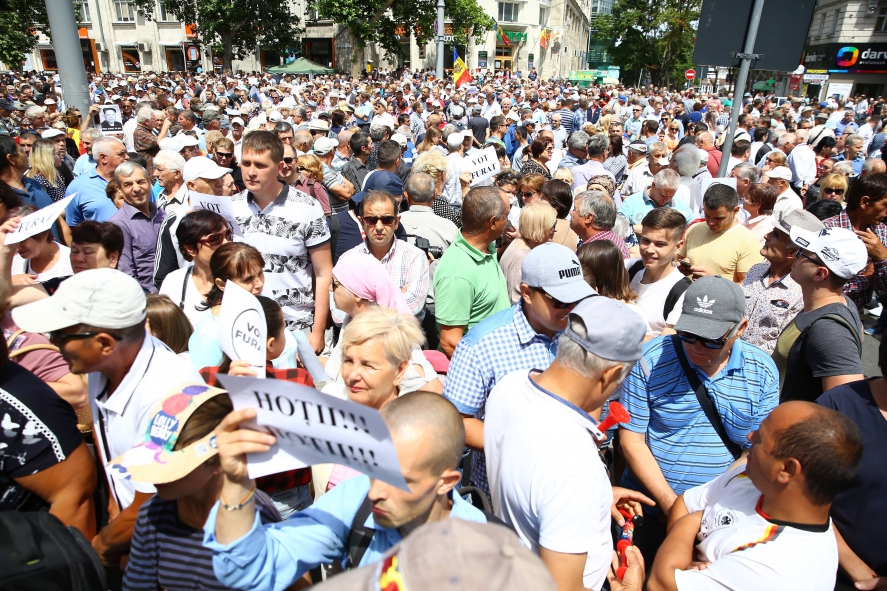
In June 2018, the Chișinău District Court cancelled the results of the snap local elections for the mayoral seat of the capital city. The elections were won by the Dignity and Truth Platform Party leader, Andrei Năstase. His mandate was not validated on the grounds that he would have campaigned on social media on the day before elections. Andrei Năstase addressed voters on Facebook and advised them to participate in the vote.
The decision was heavily criticised by local experts, ambassadors and representatives of international forums. The decision remained in force and after being challenged in the higher courts. After one year and three months, the mandate of Andrei Năstase was validated. By that moment other local elections were organised and his rival, socialist Ion Ceban won the mayor seat.
6 The Citizenship by Investments Law
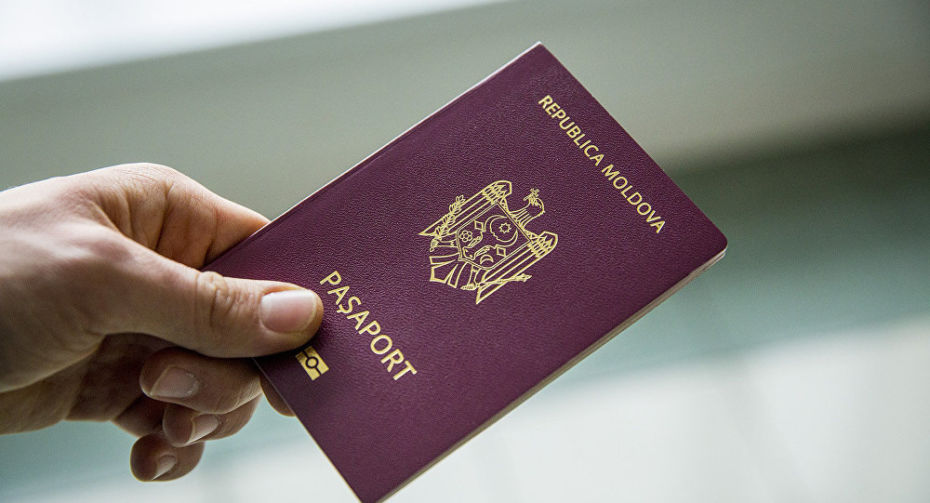
Also in 2018, the Parliament adopted the law on granting citizenship by investments – a mechanism by which foreign citizens could obtain citizenship of the Republic of Moldova. “The Law on Citizenship by Investments of the Republic of Moldova is one of the projects that created favourable conditions for international money laundering,” Transparency International-Moldova states in a report. Such models for granting citizenship are criticized by European officials, and some countries have already given up these programs. In the summer of 2019, the Government instituted a moratorium on this law for a period of four months.
7 The president removed from power “for 5 minutes”
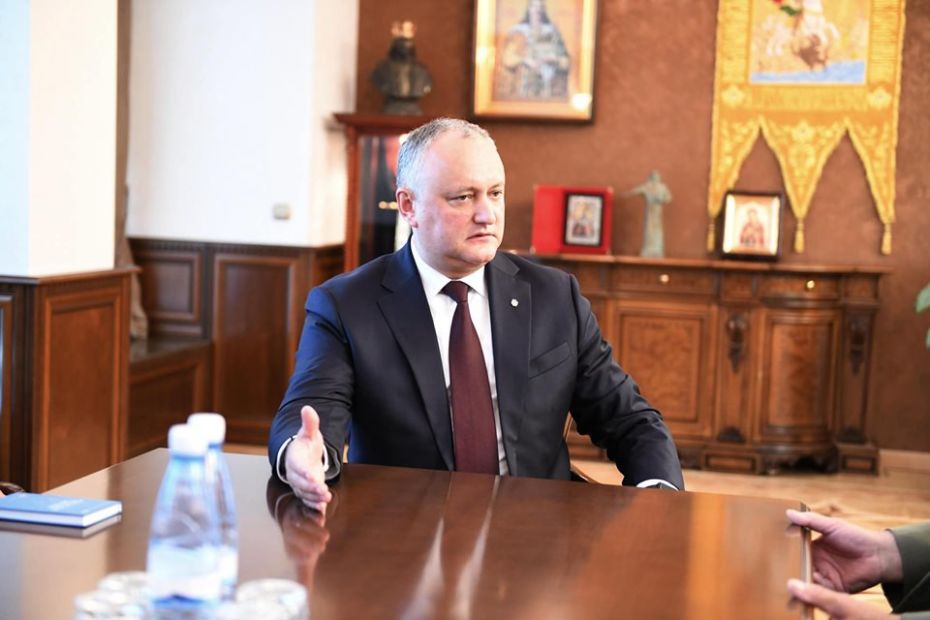
In 2017, the Constitutional Court decided that the president’s refusal to carry out his constitutional duties in appointing a minister represented “a temporary impossibility to exercise his duties” and justified assigning the president of the Parliament or the prime minister as the interim head of state. In other words, the CC decided that the president Igor Dodon had no veto in appointing a minister, and the signature of the head of state on the confirmation decree is only a formal one.
In the period of 2017 to 2018, Igor Dodon was temporarily removed from office for five times, and the respective decrees were signed by the President of the Parliament Andrian Candu. The removal for “five minutes” became a joke of the representatives of civil society and experts who stated that Igor Dodon may claim to be included in the Guinness Book of Records. In December 2018, Igor Dodon stated that he had called for protest in case another removal from power would have taken place.
8 The adoption of the mixed electoral system

In the summer of 2017, the Parliament adopted the law on the mixed voting system. It provided that 50 deputies would be elected on party lists, and 51 – directly by citizens, in single-seat constituencies. The mixed voting system was adopted by the socialists, democrats and popular-Europeans and has been criticised by the Venice Commission, the European Union, the United States and by the political opposition.
After the formation of the new majority government, the Parliament adopted, in the summer of 2019, the return to the proportional representation system, cancelling the mixed voting system.
9 The appointment of the Government led by Pavel Filip
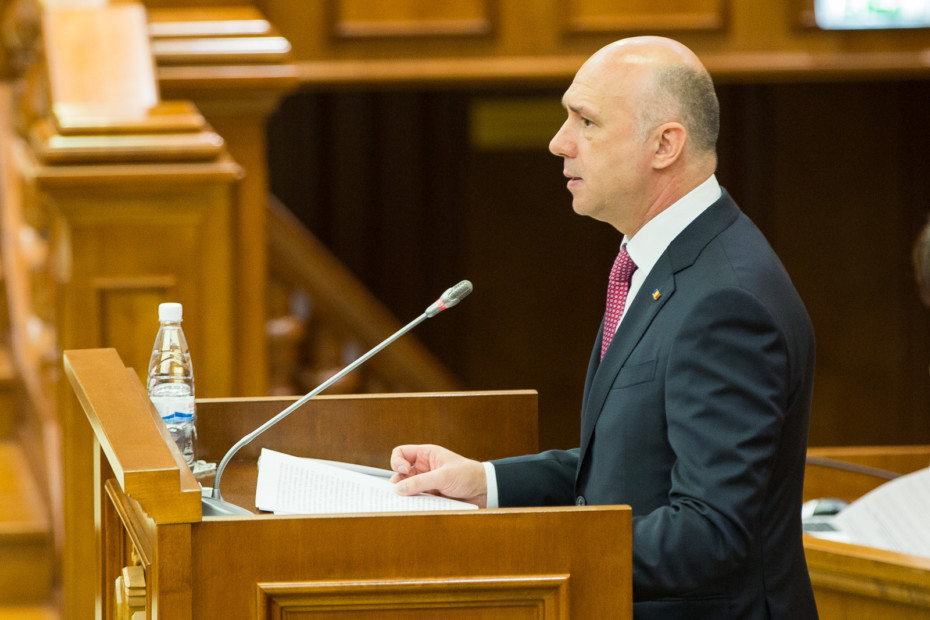
On January 20, 2016, the Parliament where the democrats held the majority, granted a vote of confidence to the candidate Pavel Filip and his Cabinet of Ministers. At that time, neither the draft Government activity program, nor the list of proposed Government members had been made public. The new Government was voted in a session that lasted about 30 minutes, in which the designated PM held a speech for 8 minutes and, in another 2 minutes, presented the Executive’s list. The discussions and debates were omitted.
Moreover, the procedure for taking the oath by the members of the Government also took place on January 20, secretly, at midnight. Thousands of protesters surrounded Parliament, calling for snap parliamentary elections. Subsequently, the protesters entered the Parliament building forcefully, and altercations took place.
10 Ilan Șor became the mayor of Orhei
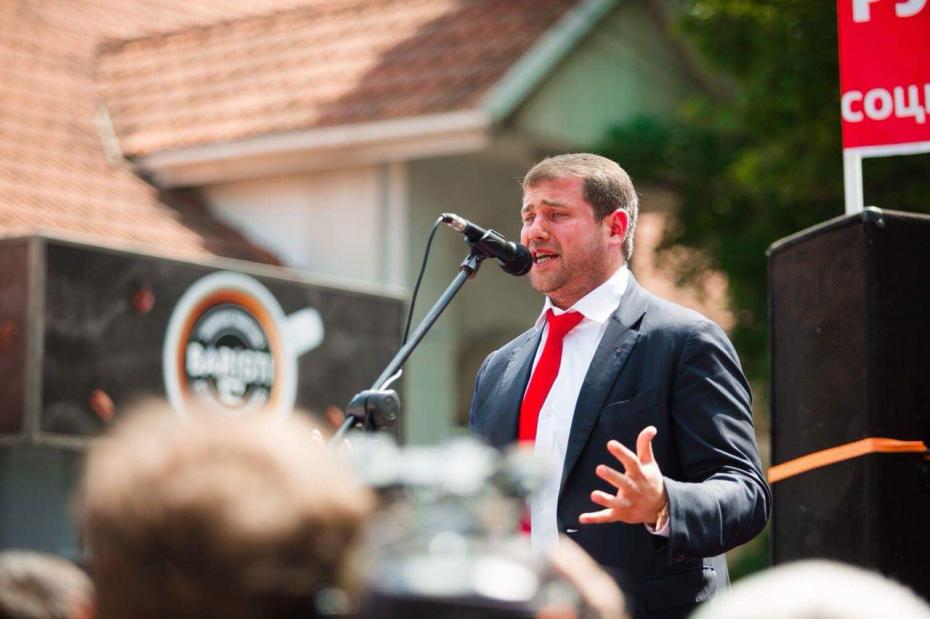
Being criminally investigated in the “Theft of the century” case and being arrested at home, on June 14, 2015, Ilan Shor won the mayoral elections with 61.97% of the votes. Political analysts described his involvement in politics as an intention to escape house detention.
In 2017, he was sentenced by the first court to 7 and a half years in prison. Despite the accusations, Ilan Șor pleaded not guilty and continued his political activity . Moreover, he also obtained a mandate as a member of the Parliament. In 2019, he received the certificate of integrity to run for parliamentary elections. Later on, Ilan Şor left the country despite the court ban, after the democrats’ power withdrawal.
11 The theft of the century
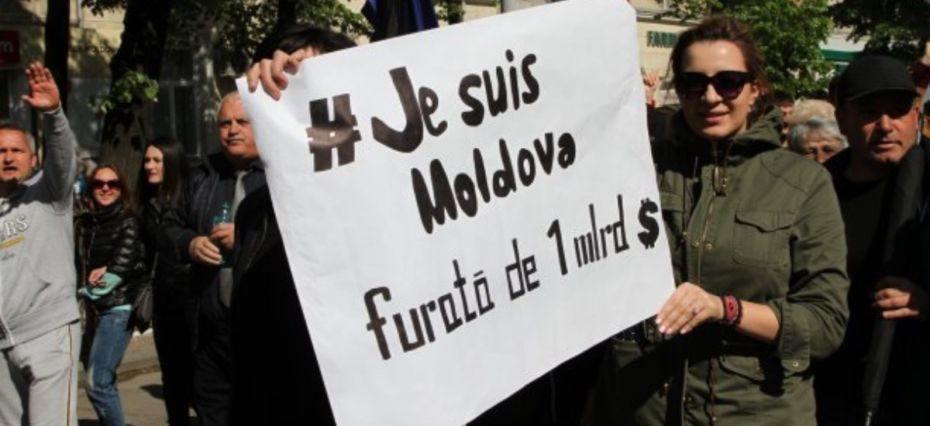
In 2014, the Republic of Moldova became the scene of an international scandal, following a fraudulent scheme of 1 billion withdrawal from 3 saving banks from Moldova. To save the situation, two governments (led by Iurie Leancă and Chiril Gaburici) took decisions to grant state guarantees for covering the hole in the banking system. To investigate the case, Kroll company was invited.
At the initiative of the political bloc ACUM, a new parliamentary commission was created in order to investigate the banking fraud. It’s conclusions were that the amount of damage could be much higher than initially stated and that the main beneficiaries of the bank robbery were the Vladimir Plahotniuc, Ilan Șor and Vladimir Filat groups.
12 The stolen billion has to be paid by Moldovan citizens in the next 21 years
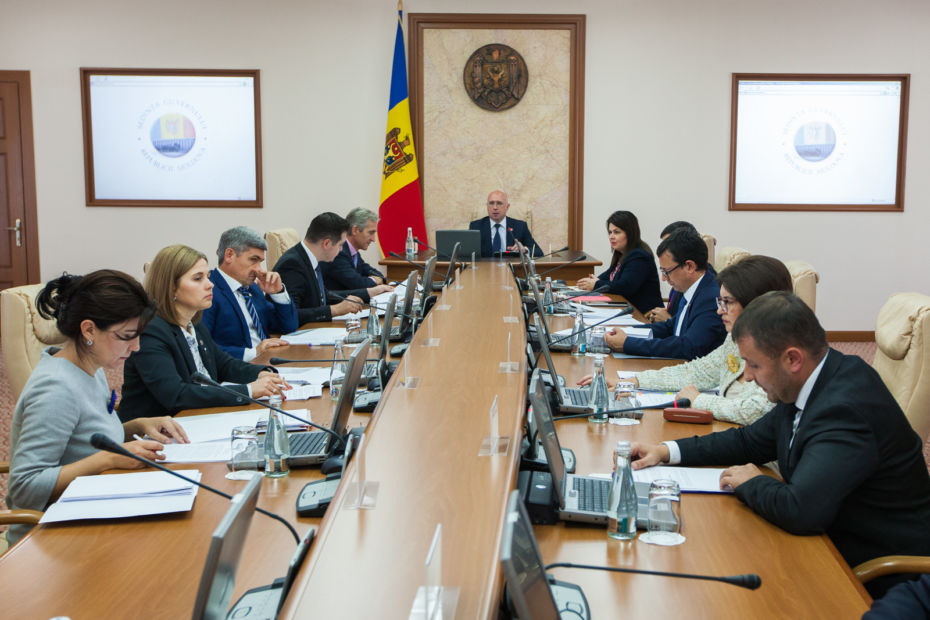
In 2016, the Government led by Pavel Filip decided to convert the emergency loans, amounting to 13.5 billion Moldovan lei, transferred by the National Bank of Moldova to three affected by the robbery banks, into state debt. Therefore, the citizens of Moldova would have to return in the next 25 years about 21 billion Moldovan lei (including the interest for the emergency loans). It was calculated that every child born in the Republic of Moldova would owe the state 4000 lei (182 euros) from the first day of his life.
13 No president, for almost three years
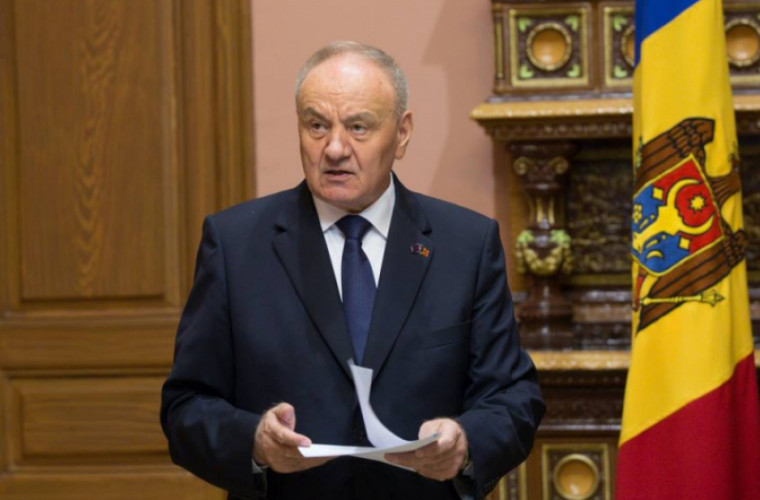
In 2009, when the former head of state Vladimir Voronin announced his resignation, the Parliament tried twice, but without success, to elect the democratic leader Marian Lupu to this position. In November 2010, due to Parliament’s inability to elect the head of state, snap parliamentary elections were held again. Finally, in March 2012 the candidacy of the former president of the Superior Council of Magistracy, Nicolae Timofti, was voted to be the president. Therefore, the constitutional crisis lasted for about two and a half years (from September 2009 to March 2012).
This text is a translation. The original article can be found here.
Photo: privesc.eu
Society
“They are not needy, but they need help”. How Moldovan volunteers try to create a safe environment for the Ukrainian refugees

At the Government’s ground floor, the phones ring constantly, the laptop screens never reach standby. In one corner of the room there is a logistics planning meeting, someone has a call on Zoom with partners and donors, someone else finally managed to take a cookie and make some coffee. Everyone is exhausted and have sleepy red eyes, but the volunteers still have a lot of energy and dedication to help in creating a safe place for the Ukrainian refugees.
“It’s like a continuous bustle just so you won’t read the news. You get home sometimes and you don’t have time for news, and that somehow helps. It’s a kind of solidarity and mutual support,” says Vlada Ciobanu, volunteer responsible for communication and fundraising.
The volunteers group was formed from the very first day of war. A Facebook page was created, where all types of messages immediately started to flow: “I offer accommodation”, “I want to help”, “I want to get involved”, “Where can I bring the products?”, “I have a car and I can go to the customs”. Soon, the authorities also started asking for volunteers’ support. Now they all work together, coordinate activities and try to find solutions to the most difficult problems.
Is accommodation needed for 10, 200 or 800 people? Do you need transportation to the customs? Does anyone want to deliver 3 tons of apples and does not know where? Do you need medicine or mobile toilets? All these questions require prompt answers and actions. Blankets, sheets, diapers, hygiene products, food, clothes – people bring everything, and someone needs to quickly find ways of delivering them to those who need them.
Sometimes this collaboration is difficult, involves a lot of bureaucracy, and it can be difficult to get answers on time. “Republic of Moldova has never faced such a large influx of refugees and, probably because nobody thought this could happen, a mechanism of this kind of crisis has not been developed. Due to the absence of such a mechanism that the state should have created, we, the volunteers, intervened and tried to help in a practical way for the spontaneous and on the sport solutions of the problems,” mentions Ecaterina Luțișina, volunteer responsible for the refugees’ accommodation.
Ana Maria Popa, one of the founders of the group “Help Ukrainians in Moldova/SOS Українці Молдовa” says that the toughest thing is to find time and have a clear mind in managing different procedures, although things still happen somehow naturally. Everyone is ready to intervene and help, to take on more responsibilities and to act immediately when needed. The biggest challenges arise when it is necessary to accommodate large families, people with special needs, for which alternative solutions must be identified.
Goods and donations
The volunteers try to cope with the high flow of requests for both accommodation and products of all kinds. “It came to me as a shock and a panic when I found out that both mothers who are now in Ukraine, as well as those who found refuge in our country are losing their milk because of stress. We are trying to fill an enormous need for milk powder, for which the demand is high and the stocks are decreasing”, says Steliana, the volunteer responsible for the distribution of goods from the donation centers.
Several centers have been set up to collect donations in all regions of Chisinau, and volunteers are redirecting the goods to where the refugees are. A system for processing and monitoring donations has already been established, while the volunteer drivers take over the order only according to a unique code.
Volunteers from the collection centers also do the inventory – the donated goods and the distributed goods. The rest is transported to Vatra deposit, from where it is distributed to the placement centers where more than 50 refugees are housed.
When they want to donate goods, but they don’t know what would be needed, people are urged to put themselves in the position of refugees and ask themselves what would they need most if they wake up overnight and have to hurriedly pack their bags and run away. Steliana wants to emphasise that “these people are not needy, but these people need help. They did not choose to end up in this situation.”
Furthermore, the volunteer Cristina Sîrbu seeks to identify producers and negotiate prices for products needed by refugees, thus mediating the procurement process for NGOs with which she collaborates, such as Caritas, World Children’s Fund, Polish Solidarity Fund, Lifting hands, Peace Corps and others.
One of the challenges she is facing now is the identifying a mattress manufacturer in the West, because the Moldovan mattress manufacturer that has been helping so far no longer has polyurethane, a raw material usually imported from Russia and Ukraine.
Cristina also needs to find solutions for the needs of the volunteer groups – phones, laptops, gsm connection and internet for a good carrying out of activities.
Hate messages
The most difficult thing for the communication team is to manage the hate messages on the social networks, which started to appear more often. “Even if there is some sort of dissatisfaction from the Ukrainian refugees and those who offer help, we live now in a very diverse society, there are different kind of people, and we act very differently under stress,” said Vlada Ciobanu.
Translation by Cătălina Bîrsanu
Important
#WorldForUkraine – a map that shows the magnitude of the world’s actions against Russian aggression

The international community and volunteers from all over te world have launched #WorldForUkraine as a platform that shows the magnitude of the world’s actions against the Russian aggression. In a digital world – it is an interactive map of public support of Ukrainians under the hashtag #WorldForUkraine – rallies, flash mobs, protests around the world. In the physical dimension – it is your opportunity to take to the streets and declare: “No to Putin’s aggression, no to war.”
„Today, along with the political and military support, emotional connection with the civilized world and truthful information are extremely important for Ukraine. The power to do it is in your hands. Join the #WorldForUkraine project and contribute to the victorious battle against the bloodshed inflicted on Ukraine by the aggression of the Russian Federation”, says the „about the project” section of the platform.
Go to the streets — Tell people — Connect and Unite — Become POWERFUL
Volunteers have launched #WorldForUkraine as a platform that shows the magnitude of the world’s actions against Russian aggression. In digital world – it is an INTERACTIVE MAP of public support of Ukrainians worldforukraine.net under the hashtag #WorldForUkraine – rallies, flash mobs, protests around the world. In the physical dimension – it is your opportunity to take to the streets and declare: “No to Putin’s aggression, no to war.” There you may find information about past and future rallies in your city in support of Ukraine. This is a permanent platform for Ukrainian diaspora and people all over the world concerned about the situation in Ukraine.
So here’s a couple of things you could do yourself to help:
* if there is a political rally in your city, then participate in it and write about it on social media with geolocation and the hashtag #WorldForUkraine
* if there are no rallies nearby, organize one in support of Ukraine yourself, write about it on social media with geolocation adding the hashtag #WorldForUkraine
The map will add information about gathering by #WorldForUkraine AUTOMATICALLY
Your voice now stronger THAN ever
All rallies are already here: https://worldforukraine.net
Important
How is Moldova managing the big influx of Ukrainian refugees? The authorities’ plan, explained

From 24th to 28th of February, 71 359 Ukrainian citizens entered the territory of Republic of Moldova. 33 173 of them left the country. As of this moment, there are 38 186 Ukrainian citizens in Moldova, who have arrived over the past 100 hours.
The Moldovan people and authorities have organized themselves quickly from the first day of war between Russia and Ukraine. However, in the event of a prolonged armed conflict and a continuous influx of Ukrainian refugees, the efforts and donations need to be efficiently managed. Thus, we inquired about Moldova’s long-term plan and the state’s capacity to receive, host, and treat a bigger number of refugees.
On February 26th, the Ministry of Labor and Social Protection of Moldova approved the Regulation of organization and functioning of the temporary Placement Center for refugees and the staffing and expenditure rules. According to the Regulation, the Centers will have the capacity of temporary hosting and feeding at least 20 persons, for a maximum of 3 months, with the possibility of extending this period. The Centers will also offer legal, social, psychological, and primary medical consultations to the refugees. The Center’s activity will be financed from budget allocations, under Article 19 of Provision no. 1 of the Exceptional Situations Commission from February 24th, 2022, and from other sources of funding that do not contravene applicable law.
The Ministry of Inner Affairs and the Government of Moldova facilitated the organization of the volunteers’ group “Moldova for Peace”. Its purpose is to receive, offer assistance and accommodation to the Ukrainian refugees. The group is still working on creating a structure, registering and contacting volunteers, etc. It does not activate under a legal umbrella.
Lilia Nenescu, one of the “Moldova for Peace” volunteers, said that the group consists of over 20 people. Other 1700 registered to volunteer by filling in this form, which is still available. The group consists of several departments:
The volunteers’ department. Its members act as fixers: they’re responsible for connecting the people in need of assistance with the appropriate department. Some of the volunteers are located in the customs points. “The Ministry of Inner Affairs sends us every day the list of the customs points where our assistance is needed, and we mobilize the volunteers”, says Lilia Nenescu.
The Goods Department manages all the goods donated by the Moldavian citizens. The donations are separated into categories: non-perishable foods and non-food supplies. The volunteers of this department sort the goods into packages to be distributed.
The Government intends to collect all the donations in four locations. The National Agency for Food Safety and the National Agency for Public Health will ensure mechanisms to confirm that all the deposited goods comply with safety and quality regulations.
The Service Department operates in 4 directions and needs the volunteer involvement of specialists in psychology, legal assistance (the majority of the refugees only have Ukrainian ID and birth certificates of their children); medical assistance; translation (a part of the refugees are not Ukrainian citizens).
According to Elena Mudrîi, the spokesperson of the Ministry of Health, so far there is no data about the number of Covid-19 positive refugees. She only mentioned two cases that needed outpatient medical assistance: a pregnant woman and the mother of a 4-day-old child.
The Accommodation Department. The volunteers are waiting for the centralized and updated information from the Ministry of Labor about the institutions offering accommodation, besides the houses offered by individuals.
The Transport Department consists of drivers organized in groups. They receive notifications about the number of people who need transportation from the customs points to the asylum centers for refugees.
The municipal authorities of Chișinău announced that the Ukrainian children refugees from the capital city will be enrolled in educational institutions. The authorities also intend to create Day-Care Centers for children, where they will be engaged in educational activities and will receive psychological assistance. Besides, the refugees from the municipal temporary accommodation centers receive individual and group counseling.
In addition to this effort, a group of volunteers consisting of Ana Gurău, Ana Popapa, and Andrei Lutenco developed, with the help of Cristian Coșneanu, the UArefugees platform, synchronized with the responses from this form. On the first day, 943 people offered their help using the form, and 110 people asked for help. According to Anna Gurău, the volunteers communicate with the Government in order to update the platform with the missing data.
Translation from Romanian by Natalia Graur












